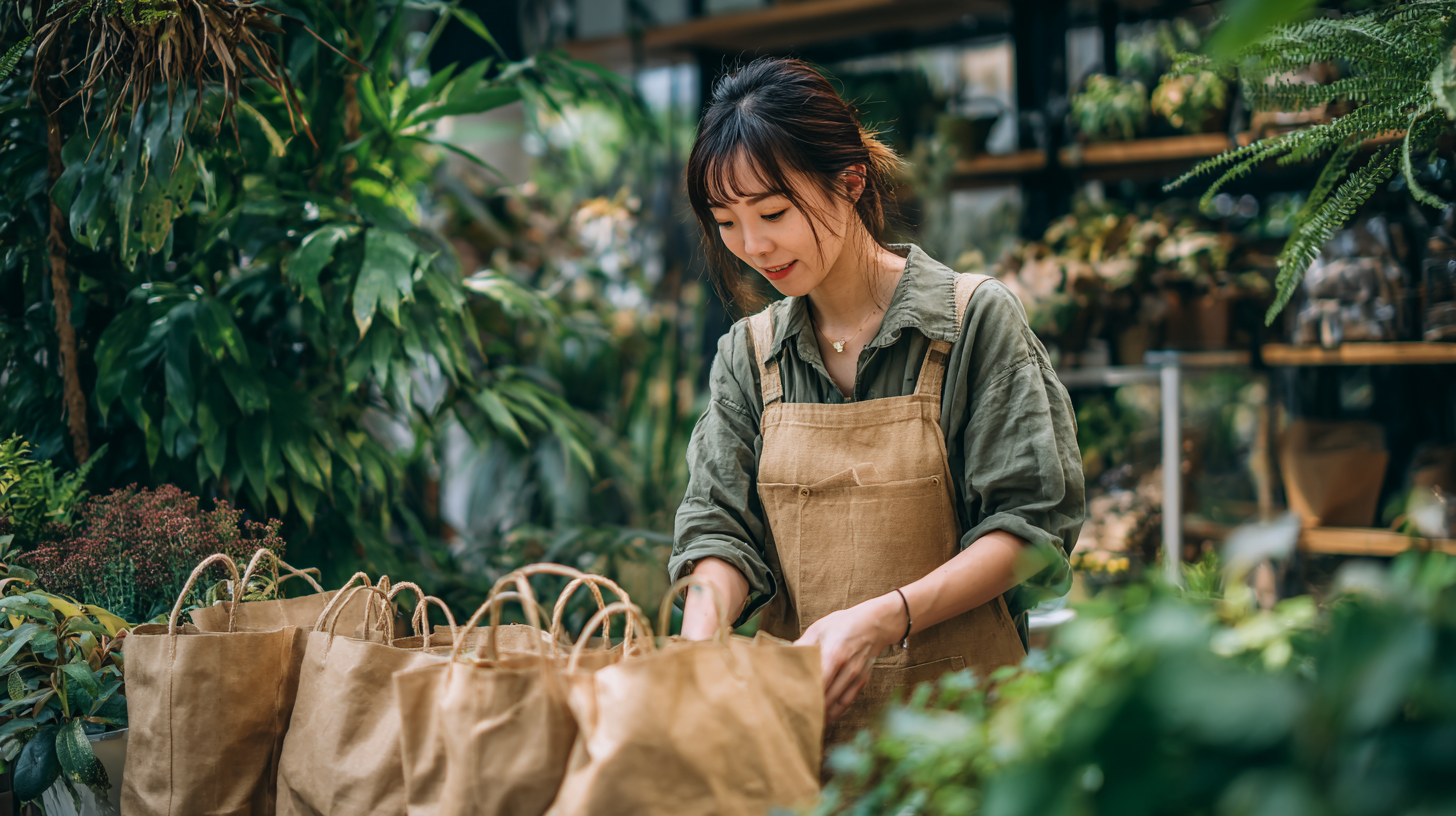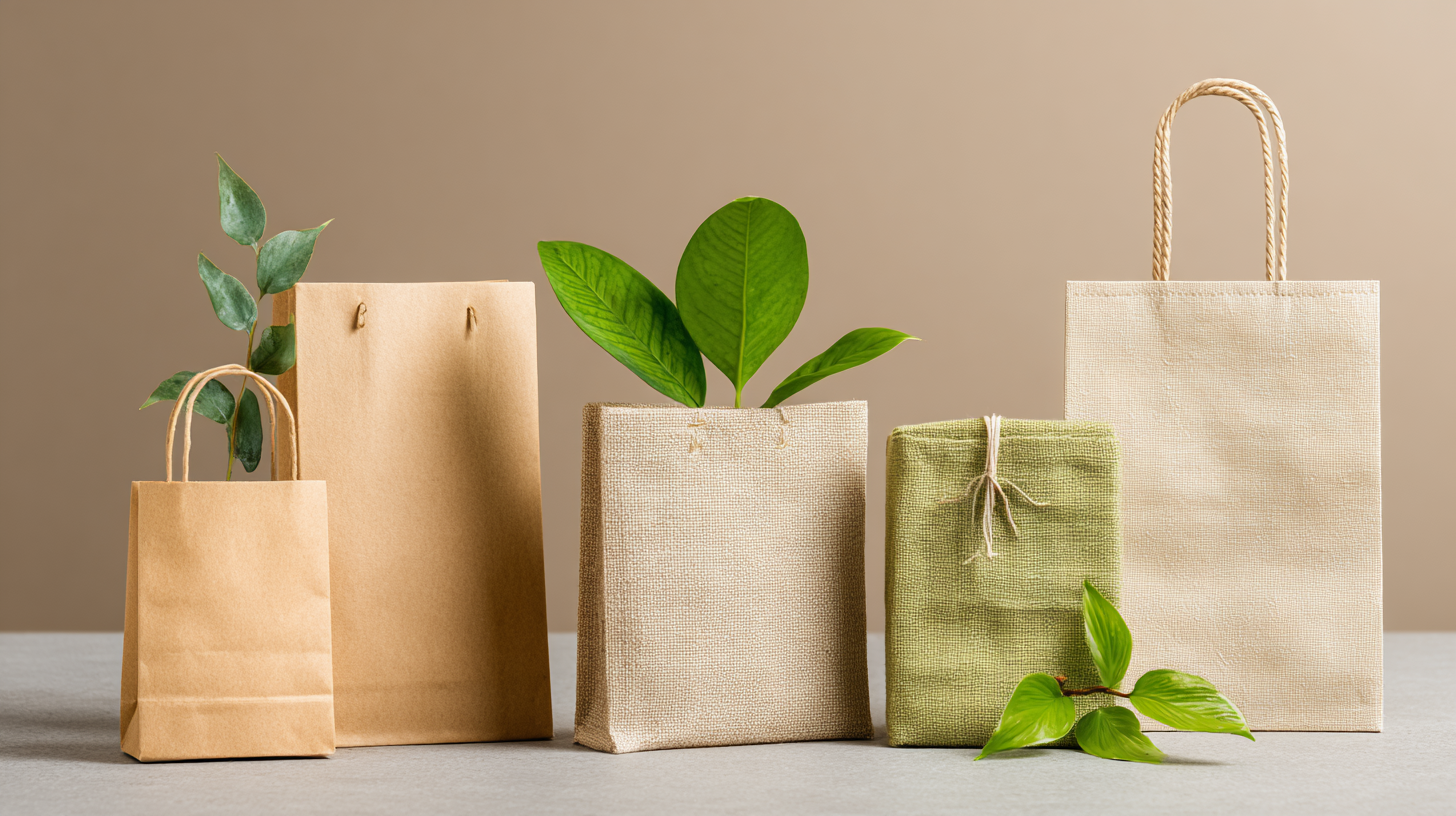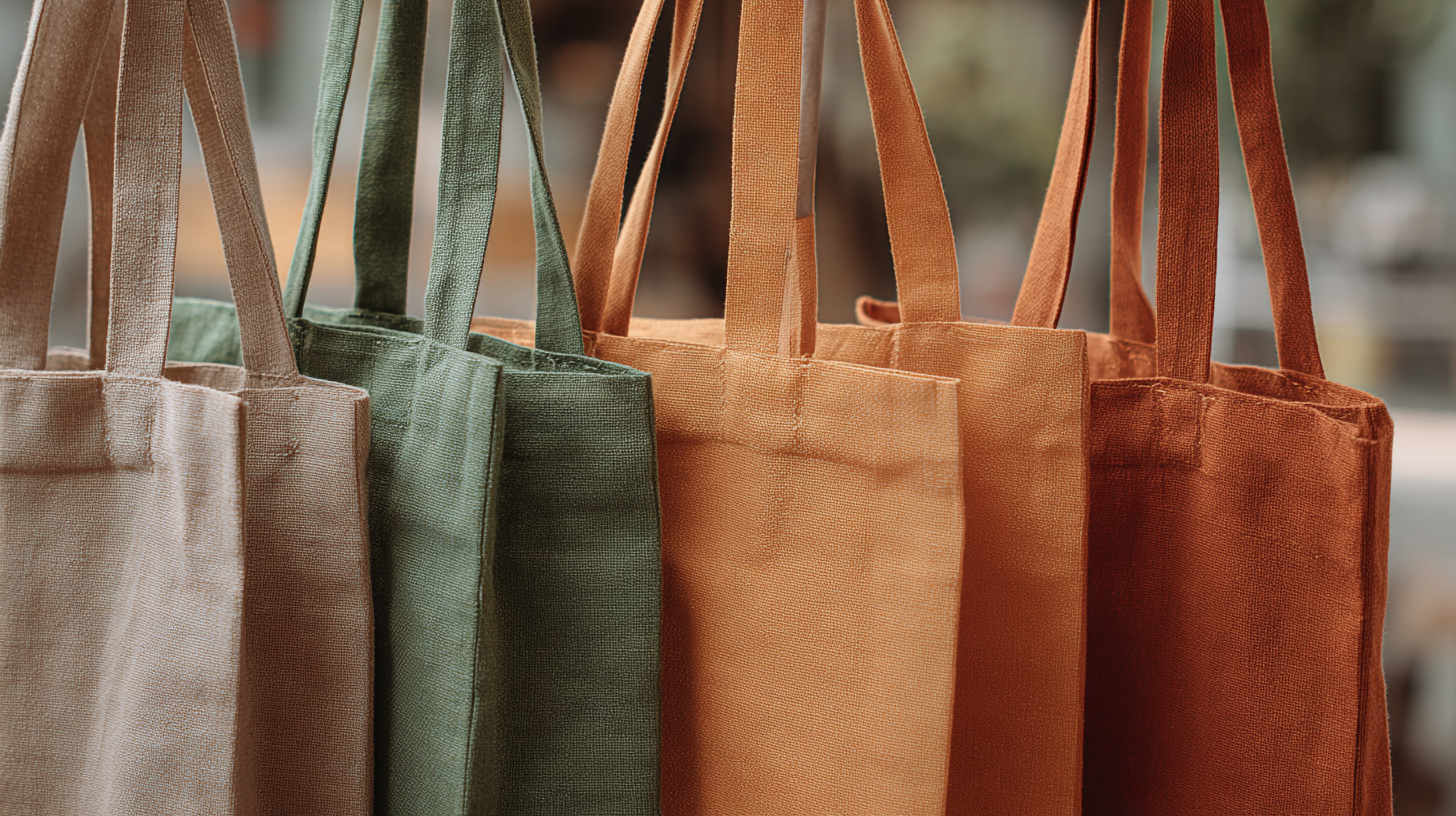How to Choose the Best Sustainable Bags for Your Business: An Expert's Guide to Eco-Friendly Solutions
In an era where environmental consciousness is paramount, businesses are increasingly turning to sustainable bags as a viable solution for their packaging needs. According to a recent report by the Sustainable Packaging Coalition, the global market for sustainable packaging is projected to reach $500 billion by 2027, highlighting a significant shift towards eco-friendly options. Companies looking to enhance their corporate responsibility and appeal to eco-conscious consumers must carefully select sustainable bags that not only reflect their brand values but also meet practical needs.

This expert guide delves into the key considerations for choosing the best sustainable bags, offering insights into materials, design, and functionality, all while ensuring compliance with sustainability standards. By prioritizing eco-friendly solutions, businesses can contribute to a greener planet and resonate with a growing demographic that prioritizes sustainability.
Table of Contents
[Hide]
Understanding the Importance of Sustainable Bags in Modern Business Practices
In an era where sustainability is increasingly prioritized, the incorporation of eco-friendly bags into business practices has become essential. According to a recent report by Market Research Future, the global demand for sustainable bags is projected to reach $30 billion by 2025, driven by consumers' growing awareness of environmental issues. Utilizing sustainable bags not only reduces plastic waste but also enhances brand image, as today’s consumers prefer businesses that align with their values.

Tip: When selecting sustainable bags, consider materials such as organic cotton, recycled paper, or biodegradable plastics. These options not only minimize environmental impact but also provide your brand with unique marketing opportunities. Making a conscious choice in materials can significantly enhance customer loyalty and engagement.
Moreover, integrating sustainable practices into your supply chain can yield financial benefits. A study by Nielsen indicates that 66% of global consumers are willing to pay more for sustainable brands, and 73% of millennials are ready to make significant lifestyle changes for the sake of the environment. By establishing your commitment to sustainability through the use of eco-friendly bags, you tap into a growing market that values ethical consumption.
Tip: To further promote sustainability, encourage customers to participate in recycling programs or offer discounts for returning reusable bags. This not only fosters a sense of community but also reinforces your brand's dedication to sustainable solutions.
Key Features to Look for in Eco-Friendly Bag Materials
When selecting sustainable bags for your business, the materials used are paramount. According to a 2021 report by the Sustainable Packaging Coalition, around 63% of consumers prefer brands that utilize eco-friendly packaging, highlighting the growing importance of material selection in enhancing brand loyalty and customer satisfaction. Key features to look for include recyclability, biodegradability, and the use of renewable resources. Bags made from recycled materials, such as recycled PET (rPET), not only reduce waste but also lower carbon emissions, making them an excellent choice for environmentally conscious businesses.
Additionally, certification is a crucial aspect to consider. Look for bags that have been certified by reputable organizations such as the Forest Stewardship Council (FSC) or Global Organic Textile Standard (GOTS). These certifications ensure that the materials used are sourced sustainably and have a minimal environmental impact throughout their lifecycle. In fact, a study by Nielsen shows that 66% of global consumers are willing to pay more for sustainable brands, which underscores the potential market advantages of investing in high-quality, eco-friendly bag materials. By prioritizing these features, businesses can align their values with those of their consumers, fostering a positive brand image while contributing to a more sustainable future.
How to Choose the Best Sustainable Bags for Your Business
| Feature | Description | Examples of Materials | Environmental Impact |
|---|---|---|---|
| Recyclability | Ability of the bag material to be recycled after use. | Recycled PET (rPET), Kraft paper | Reduces waste and encourages a circular economy. |
| Biodegradability | Materials that break down naturally in the environment. | Organic cotton, jute | Reduces landfill waste and pollution. |
| Durability | The ability of the bag to withstand wear, pressure, or damage. | Reusable canvas, thick jute | Encourages multiple uses, reducing the need for single-use bags. |
| Source of Material | Sustainability of the raw materials used in manufacturing. | Bamboo, recycled plastics | Minimizes environmental footprint from material extraction. |
| Manufacturing Process | Energy efficiency and resource consumption during production. | Eco-friendly dyes, water-based adhesives | Reduces pollution and conserves natural resources. |
Exploring Innovative Technologies in Sustainable Bag Production for 2025
As we move towards 2025, the sustainable bag market is experiencing a significant transformation, driven by innovative technologies in production and materials. According to industry reports, the global artificial leather market is projected to grow from USD 37.59 billion in 2025 to USD 57.94 billion by 2032, reflecting a compound annual growth rate (CAGR) of 6.38%. This rise signals a growing demand for eco-friendly solutions in various sectors including fashion, retail, and hospitality.
Emerging technologies are playing a critical role in enhancing the sustainability of bag production. Advances in biodegradable materials and recycling processes are enabling manufacturers to create innovative products that not only meet consumer demand for sustainability but also offer durability and style. Brands are increasingly opting for sustainable materials, such as plant-based leathers and recycled plastics, that contribute to reduced environmental impact. As businesses evaluate their supply chains and product offerings, aligning with these technological advancements will be essential to staying competitive in the evolving marketplace.
Evaluating Cost-Effectiveness of Eco-Friendly Bags for Your Business Needs
When considering the cost-effectiveness of eco-friendly bags for your business, it is essential to look beyond the initial purchase price. According to a report from Research and Markets, the global market for sustainable bags is projected to reach $17.2 billion by 2027, reflecting a growing consumer preference for environmentally friendly products. This shift not only influences consumer purchasing decisions but also encourages businesses to adopt sustainable practices that align with market trends.

Investing in sustainable bags can lead to long-term cost savings through enhanced brand loyalty and reduced waste management costs. A study by McKinsey & Company found that brands that commit to sustainability see an average growth rate of 5-8% higher than their competitors. Additionally, opting for reusable or biodegradable materials often results in lower landfill fees and benefits from potential tax incentives for eco-friendly practices. Therefore, evaluating the full lifecycle cost of sustainable bags can reveal significant advantages that outweigh the initial investment, positioning your business as a leader in sustainability while appealing to green-conscious customers.
The Long-Term Benefits of Investing in Sustainable Packaging Solutions
In today's increasingly eco-conscious market, investing in sustainable packaging solutions presents a myriad of long-term benefits for businesses. The reusable packaging market, valued at $125.2 billion in 2023, is projected to grow at a compound annual growth rate (CAGR) of 6.1% from 2024 to 2032. This growth is fueled by heightened regulatory support for sustainable practices, indicating a significant shift in consumer expectations towards eco-friendly options. Companies that align their packaging choices with sustainability principles not only enhance their brand image but also meet the demand for greener alternatives.
Moreover, the evolving dynamics of material selections, such as the shift from traditional paraffin wax to more sustainable alternatives like rice bran wax, underscores the importance of innovation in eco-friendly packaging. As the materials we choose carry more weight than ever in sustainability discussions, businesses are encouraged to rethink their supply chains and production processes. By adopting effective logistics strategies that prioritize environmental responsibility, firms can further benefit from the rise of consumer awareness regarding ecological impact. Ultimately, integrating sustainable practices within packaging solutions is not just beneficial for the planet; it's also a strategic investment in a company's future.

We are the most reliable and proficient jute goods manufacturer & supplier that helps businesses or individuals with various exportable agricultural commodities biz and jute goods by shipping them worldwide. Our right-time service ensures that whatever color and size of jute product you need, we can make it happen anytime and anywhere! Let’s keep our earth safer to live in!
Important link
Address
Bangladesh Address:
Fair Plaza (9th Floor), Plot : 3C, Section : 01, Mirpur, Dhaka:1216
UK Office:
242 Manor Road, Droylsden, Manchester, M43 6JD, United Kingdom.
Let's Talk

We are the most reliable and proficient jute goods manufacturer & supplier that helps businesses or individuals with various exportable agricultural commodities biz and jute goods by shipping them worldwide. Our right-time service ensures that whatever color and size of jute product you need, we can make it happen anytime and anywhere! Let’s keep our earth safer to live in!
Get Started
Let's Talk
Address
Bangladesh Address:
Fair Plaza (9th Floor), Plot : 3C, Section : 01, Mirpur, Dhaka:1216
UK Office:
242 Manor Road, Droylsden, Manchester, M43 6JD, United Kingdom.